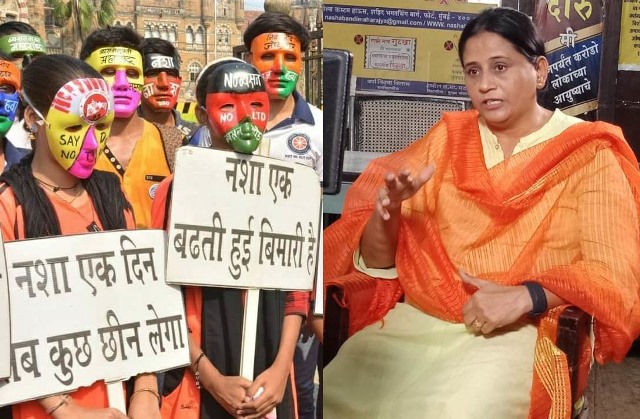Varsha Vidya Vilas, 52, a social activist says we cannot tar entire film industry with the same brush when it comes to scourge of substance abuse
Over three decades back, when I was a teenager, an incident left a lasting impression on my psyche. I was waiting at a bus stop when I witnessed a well-dressed man looking dazed and lying halfway in a gutter. Apparently, he was under the influence. It made me wonder how addiction to any kind of toxic substance can do to a normal human. It became a pivotal moment for me.
Today, I have been working as an activist to reduce the menace of drugs. I a general secretary of the Nashabandi Mandal, a Maharashtra government-run body working under department of social justice. The recent Aryan Khan case has once again brought to light the deep scourge of drug abuse, especially among youngsters.
Children as young as 11 are falling for substance abuse. While addictions like tobacco or liquor are personal choices, drug abuse is something that has the capacity to make a society even a country compromise its potential.
Reasons for getting hooked to drugs range from peer pressure to conflict or abuse at home, pressure to perform in studies etc. It is also natural for youngsters to go towards what is forbidden, the taboo. We as adults need to inspire them towards a life of joy for these youngsters are unaware of the dangers of their actions.

Some time ago there was this case of drugs being sold in front of a school disguised as toffees. We figured this out when once we went to a school for a regular seminar and the children appeared dazed. They were listening to our awareness programme but weren’t registering. It was during individual counselling that we found out that the local paan shop in the area was selling school children drugs.
In dealing with cases of substance abuse, we must remember that be it a child or an adult who has given in to addiction, needs our empathy and understanding. However, the peddlers should be strictly dealt with, for they are aware of what they are doing.
ALSO READ: ‘All Youth Are Curious About Drugs’
Many people say it is the star kids or stars themselves who do drugs, but that will be tarring an entire industry with the same brush. In fact, it is these very celebrities whose voices carry our messages far and wide when it comes to India’s fight against drug abuse. Many Bollywood personalities have lent us their support to weed out this problem from society.
No matter what the reason behind Sushant Singh Rajput’s passing away, it did start a conversation. People became widely aware of the Narcotics Control Bureau with whom we actively work on schools and colleges. Society’s help, community’s participation are needed if we are to move towards nashamukti (deaddiction) and not just nashabandi (prohibition). We also take the help of trans-genders to fight the problem and they are known as vyasan mukti doors.
The war against drugs can be won, especially when it comes to the youth, by including them and not by ignoring or judging them. Parents need to take responsibility too. Our youths are our biggest asset and we need to handle them with care.

